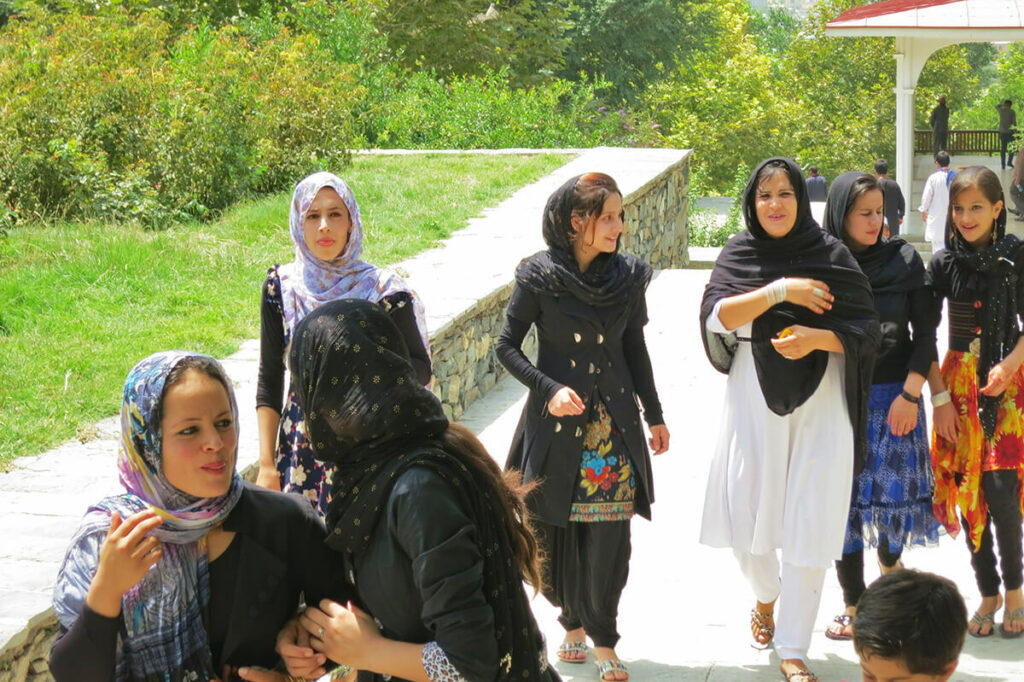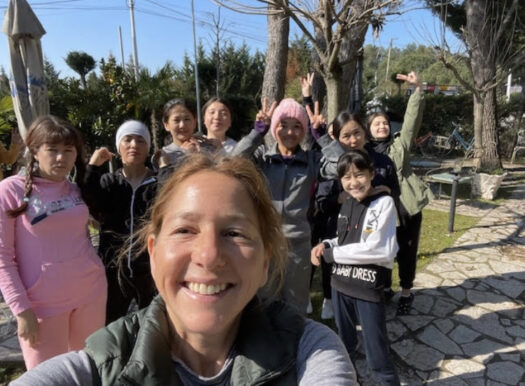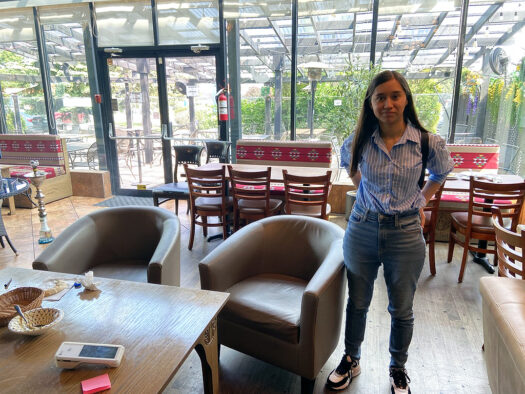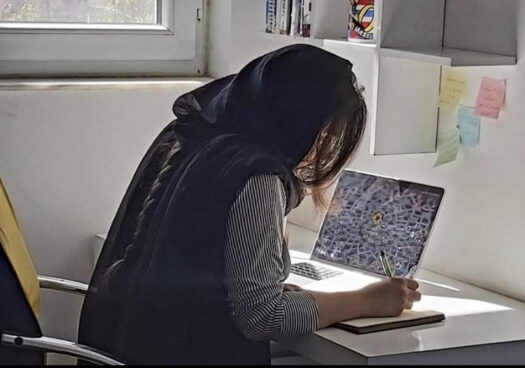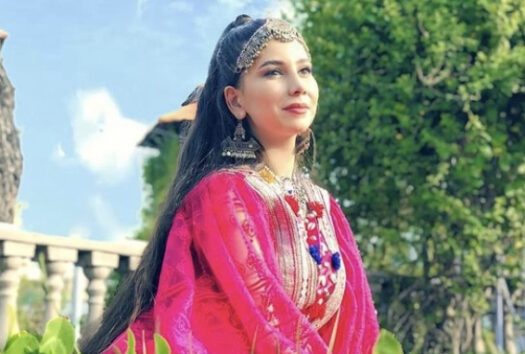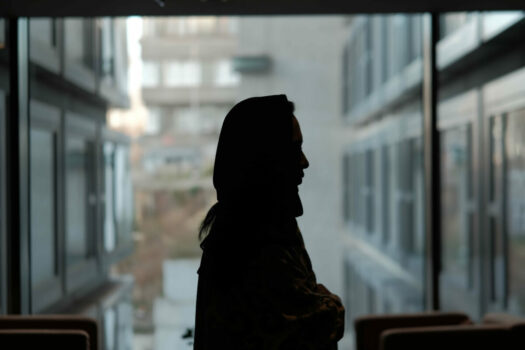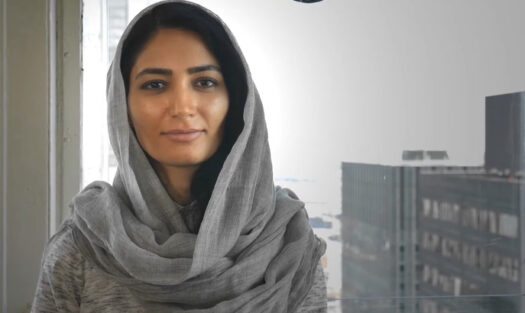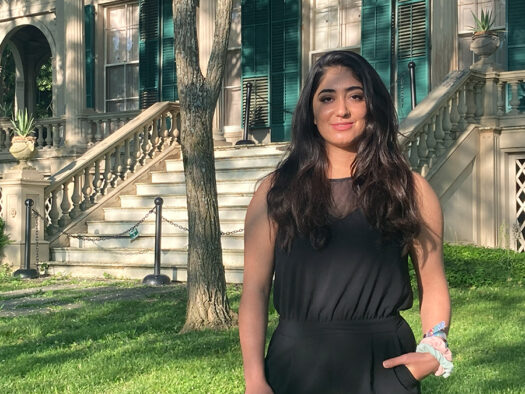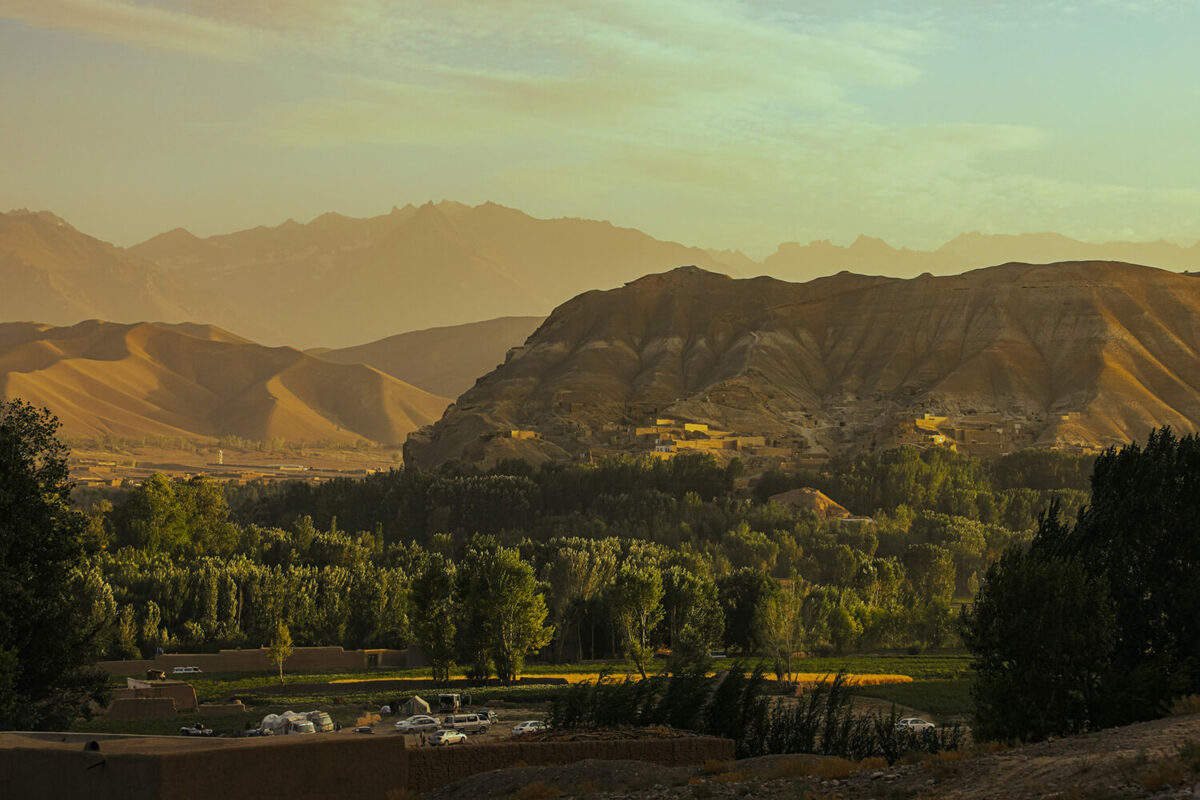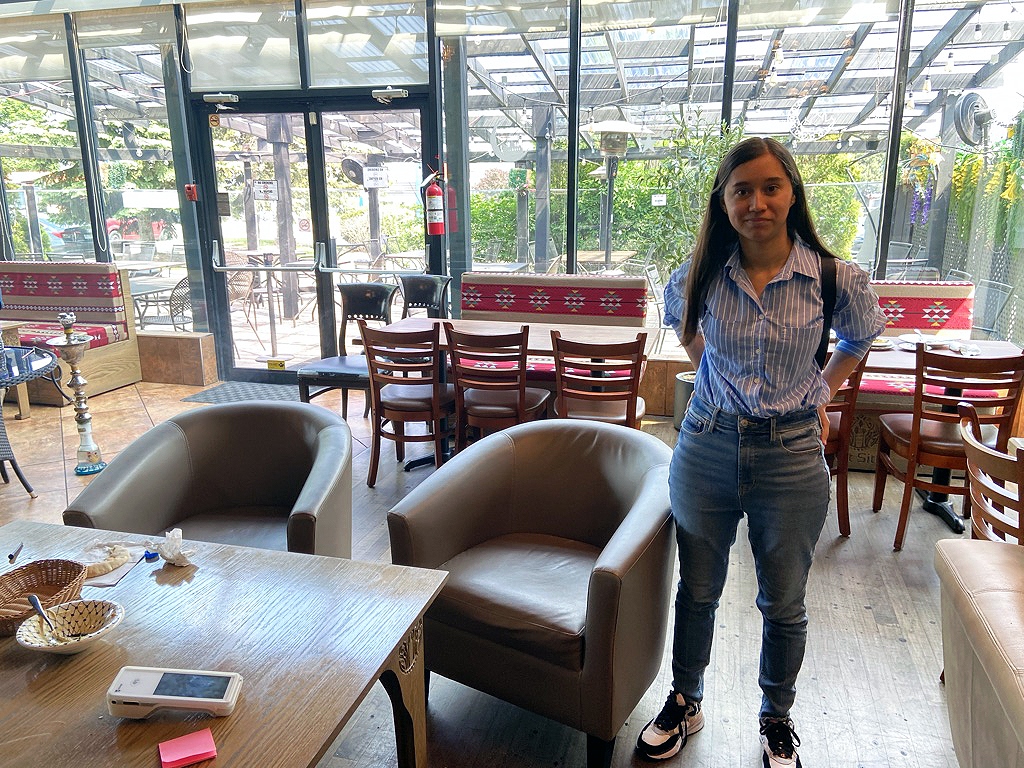
Editor’s Note: This is part of our Afghan Women project, marking two years since the Taliban takeover.
Marwa Dashty’s childhood at her grandparents’ farm in the Panjshir Valley was like something out of a storybook, complete with cows, sheep, a dog, home-grown vegetables and a beautiful garden. “There’s more than a thousand flowers,” she said. “I know for a fact my dad took care of each single one of those flowers, like [the garden] was his child. That’s how much he loved it.”
Some of her fondest childhood memories, however, aren’t of the farm, but of her journalist father’s office. Dashty, now 20, spent lots of time there as a child, “looking up to him, trying to learn whatever I could.”
Memories of her father are bittersweet now – while Dashty and other family members fled Afghanistan shortly after the U.S. withdrawal of troops, her father stayed behind to join the resistance. He was captured and killed by the Taliban a month later.
Today, an enlarged photo of her father sits propped-up on the dining-room table in her family’s apartment in Toronto, where she now lives with her mother and two brothers. It’s been a long two years for Dashty without him, and she thinks about him often. She said his death started an uproar among Afghans, as he was widely known and respected. “He inspired us all to be better, to start fighting for our country because they need us. [That’s] how great of a man he was.”
She is surprisingly optimistic – another thing she credits to her father. But there’s another reason. Because she was born after the Taliban had already been thrown from power the first time, she grew up with a glimpse of what life could be like for women.
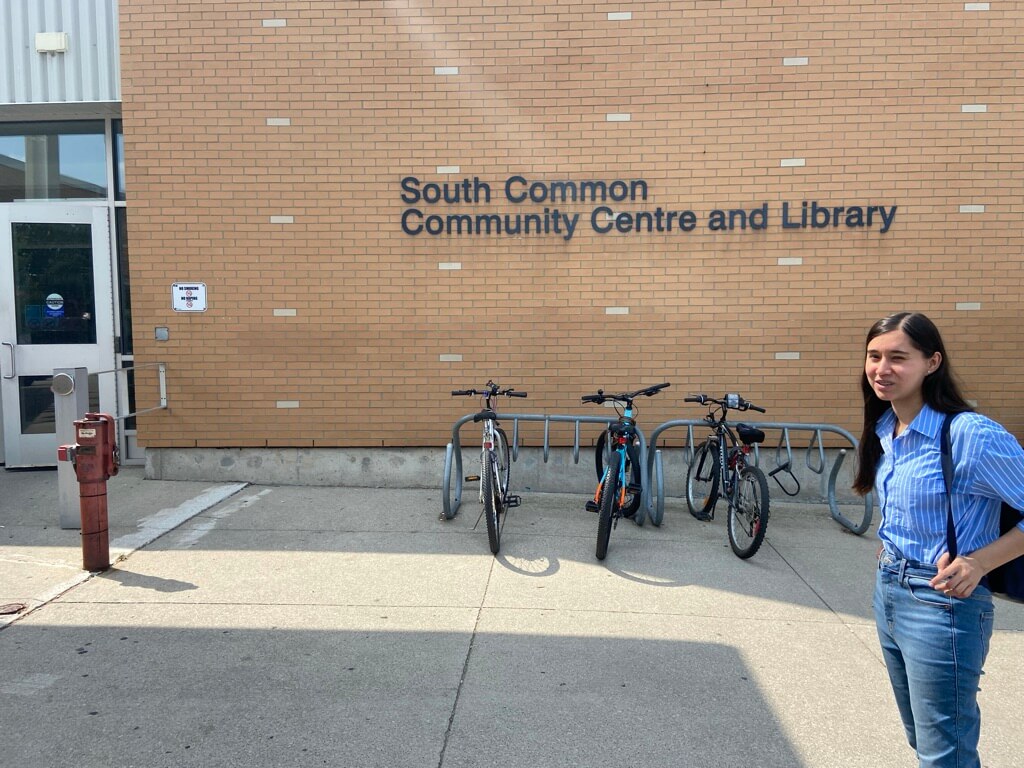
“These 20 years gave us the biggest blessing ever,” she said. “All of the girls now know what an education is, now know what a life and a future could be. All these boys now know what equality means.”
She’s hopeful she’ll get that back, so she can return to Afghanistan someday. In the meantime, she plans to follow in her father’s footsteps and become a journalist, so she can help to change the narrative surrounding Afghan women. “The job of a journalist is to know every side and to tell people every side of the story,” she said.
She believes it is an injustice “to just show the dominance, women who have nothing and no power,” and hopes to use her voice to make the world see “this whole side of empowerment, of growth, of freedom.”
–With reporting by Colleen DeBaise.
The Women We Talked To
The Israeli-American Journalist Who Led an Escape Mission
Danna Harman didn’t have any tools or resources, but she knew she had to do something to help the Afghan girls who reached out to her.
The Aspiring Journalist Following in the Footsteps of Her Father
Marwa Dashty’s father, a well-known journalist, was killed after the Taliban took over. Now, the 20-year-old wants to continue his legacy by becoming a journalist herself.
The Teacher Who Chose to Stay Behind
When Munireh’s father first received news of the Taliban takeover, he sent all the women in the family to Iran – but she refused to leave Afghanistan.
The Pop Star Whose Fan Helped Her Get Out
After Shakiba Teimori showed her long, flowing hair on television, it was as if she were exiled. And then she fled for real.
The Judge Who Escaped: ‘We Lost All of Our Achievement’
Since the Taliban’s return to power, women judges – who once dared to sentence men for their crimes – have been forced into hiding. We spoke to one whose identity we are protecting.
The Founder of Afghanistan’s First All-Girls Coding School
Fereshteh Forough opened Afghanistan’s first coding school for girls and women – but the Taliban’s ban on education prevents students from learning in-person.
The Mobile App Developer Secretly Working Online
Parima hides the fact that she works remotely, as many of her neighbors in Afghanistan don’t believe women should have jobs.
The College Student Getting a Fresh Start
Rodaba Noori is enjoying her new life at Bard College in upstate New York, but she still doesn’t consider it home.
